News
-
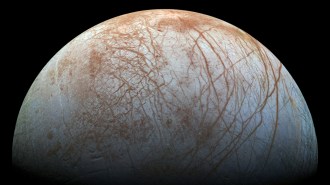 Planetary Science
Planetary ScienceOur picture of habitability on Europa, a top contender for hosting life, is changing
The moon of Jupiter is considered one of the most promising places to look for life, but its subsurface ocean may be less habitable than once thought.
By Nikk Ogasa -
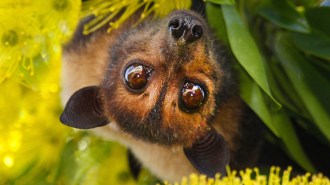 Ecosystems
EcosystemsA new road map shows how to prevent pandemics
Past viral spillover events underscore the importance of protecting wildlife habitats.
-
 Health & Medicine
Health & MedicineAimee Grant investigates the needs of autistic people
The public health researcher focuses on what kinds of support people with autism need rather than on treating the condition as a disease to cure.
-
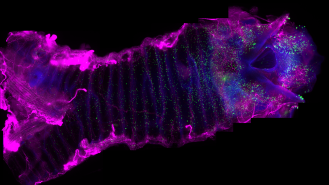 Neuroscience
NeuroscienceThese windpipe cells trigger coughs to keep water out of the lungs
Neuroendocrine cells can sense substances on the way to the lungs and prompt reactions such as coughing and swallowing, experiments in mice show.
-
 Planetary Science
Planetary ScienceJupiter’s moon Io may have been volcanically active ever since it was born
An analysis of the moon’s atmospheric composition suggests that it has been spewing sulfur for roughly 4.6 billion years.
By Nikk Ogasa -
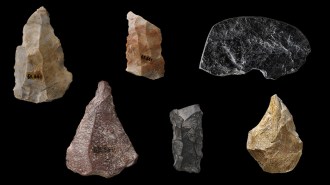 Archaeology
ArchaeologyA puzzling mix of artifacts raises questions about Homo sapiens' travels to China
A reexamined Chinese site points to a cultural mix of Homo sapiens with Neandertals or Denisovans.
By Bruce Bower -
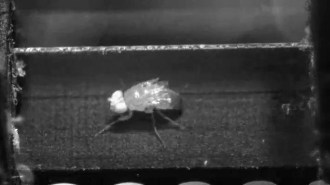 Neuroscience
NeuroscienceTiny treadmills show how fruit flies walk
A method to force fruit flies to move shows the insects’ stepping behavior and holds clues to other animals’ brains and movement.
-
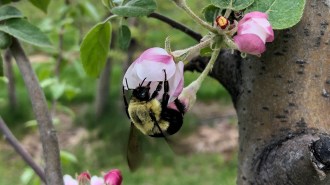 Animals
AnimalsHibernating bumblebee queens have a superpower: Surviving for days underwater
After some bumblebee queens were accidentally submerged in water and survived, researchers found them to be surprisingly tolerant of flooding.
-
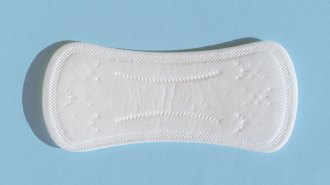 Health & Medicine
Health & MedicineWhat can period blood reveal about a person’s health?
The FDA recently approved a menstrual blood test for diabetes, the first diagnostic of any kind based on period blood. It may be just the beginning.
By Payal Dhar -
 Artificial Intelligence
Artificial IntelligenceThis robot can tell when you’re about to smile — and smile back
Using machine learning, researchers trained Emo to make facial expressions in sync with humans.
-
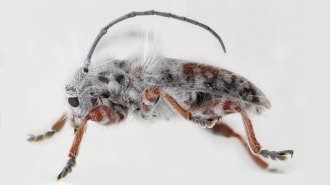 Animals
AnimalsThis newfound longhorn beetle species is unusually fluffy
Discovered in Australia, the beetle is covered in whitish hairs and has distinctive eye lobes, antennae and leg shapes.
-
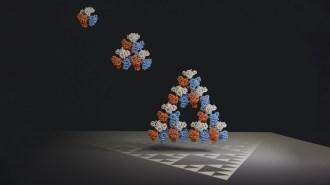 Math
MathScientists find a naturally occurring molecule that forms a fractal
The protein assembles itself into a repeating triangle pattern. The fractal seems to be an accident of evolution, scientists say.